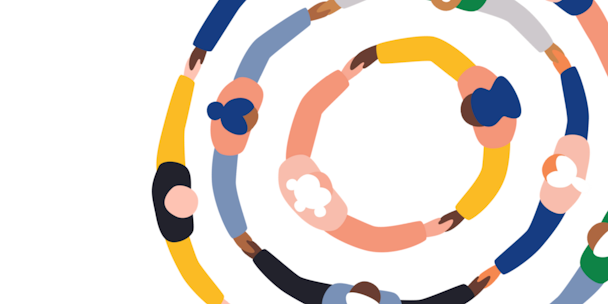Women and minorities more likely to feel like they don’t belong in adland
The WFA’s first industry-wide DE&I census has found that ageism is the most-commonly reported form of discrimination, but added that there’s a pressing need to help disabled people, ethnic minorities and LGBQ+ people feel a greater sense of belonging.

The WFA says the survey is timely, as the Covid-19 pandemic has magnified inequalities everywhere
The report dug into the key areas of inequity that still exist within the advertising industry, with the lived experiences of older women, ethnic minorities and those with a disability conclusively poorer. The survey was conducted between June and July 2021, with over 10,000 respondents across 27 markets. Men represented 41% of respondents, women 58% and gender non-conforming 1%.
Age and family status
The most-reported forms of discrimination were on the basis of age, followed by family status and gender.
27% of respondents feel that their company does not treat all employees equally regardless of age, and 36% agree that age can hinder one’s progression at their company.
40% of women say family status can negatively impact one’s career, and 27% overall agree their company does not treat all employees equally regardless of family status. 47% of women with dependent children say family status can hinder one’s career.
As caregiving responsibilities stereotypically fall on older women, the survey then found that the lived experiences of women in the industry are consistently poorer than the lived experiences of men in most countries surveyed, and this is more often than not compounded by a gender pay gap – particularly for women in more senior roles.
Race
Representation is a serious issue at senior levels, with numbers consistently dropping further up the ranks. In Ireland, it’s just 2% at the most senior level.
A majority of respondents (60%) feel that their organization is actively taking steps to be more diverse and inclusive. This sounds positive, but in 15 of the 21 markets where ethnicity was measured, ethnic minorities felt less convinced than their ethnic majority counterparts.
33% of ethnic minority respondents reported observing inappropriate behaviors at their company. This includes being unfairly spoken over (31%), being undervalued compared to colleagues of comparable competence (37%) and having people take credit for shared efforts (30%). All these numbers increased when the ethnic minority respondents were also women.
Disability and mental health
Indications are that people with disabilities are under-represented in the industry. Yet a high proportion (71%) who identify as disabled report mental/cognitive disabilities, but relatively few (44%) inform their employer.
Of the 7% of survey respondents who identified as being disabled, a strikingly low percentage (44%) claimed that their company was aware of their disability or health concerns. In that, a majority (59%) reported that their company is supportive of their health condition, however the research shows that employees are more likely to share information about their disability in an organization that offers clear company support. Therefore, perceived lack of company support is having a direct impact on those workers that identify as having a disability.
Of those who identify as disabled, 71% relate their disability to mental health/cognitive rather than physical challenges (47%). The WFA’s definition is that a mental health condition that has a long-term (more than 12 months) impact on an employee’s normal day-to-day activity counts as a disability.
A third of all respondents said they currently feel anxious or stressed due to the Covid-19 pandemic.
Mental health was also significantly poorer among those respondents who identify as being part of the LGBTQ+ community. 35% of LGBQ+ respondents reported feeling consistently anxious in their jobs compared to 27% of heterosexual respondents.
Intersections
The census looks into what it refers to as the ‘sense of belonging’ of different communities surveyed and measures this against overall wellbeing.
Globally the score is 75% for men and 70% for women. However, add in disability, for example, and the scores drop to 65% for men and 57% for women.
The people who report the lowest sense of belonging tend to be people, particularly women, with disabilities and from an ethnic minority.
The WFA says: “Integrating intersectionality into DEI strategies is an essential part of achieving equality for all. In fact, failing to do so reinforces exclusion as it categorizes employees through a single aspect of their identity.”

